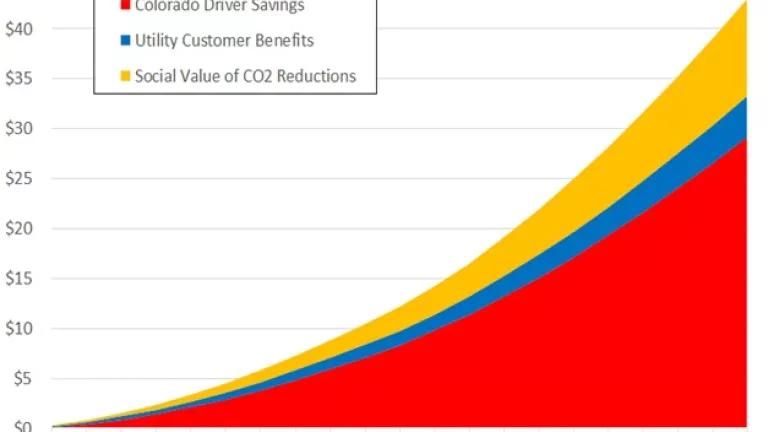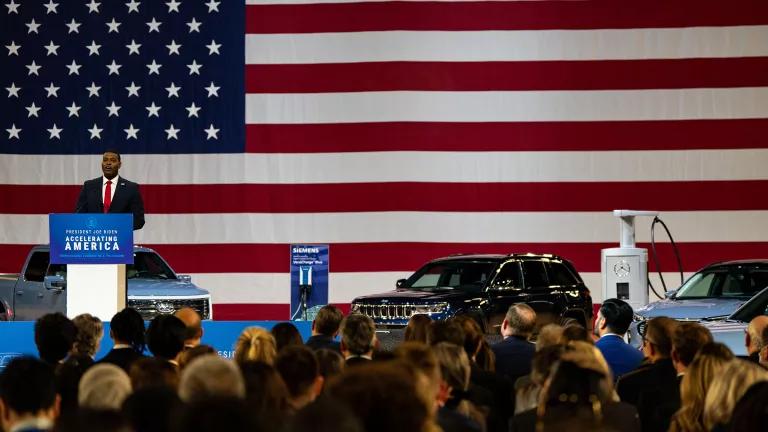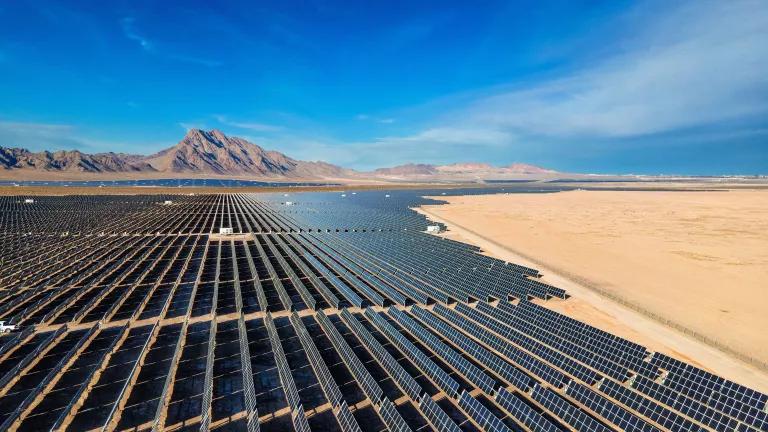Red and Blue Colorado Votes for Relief from Pain at the Pump

Updated May 3, 2019
Two pieces of legislation in Colorado headed to Governor Jared Polis’ desk to be signed into law will ensure Coloradans gain access to a cleaner, cheaper, transportation fuel, cut carbon pollution, and protect public health.
Senators Kevin Priola (R) and Angela Williams (D) and Representative Chris Hansen (D) were the prime sponsors of Senate Bill (SB) 77 and the bill gained additional support from both sides of the aisle. The bill requires utilities to facilitate the deployment of charging stations for electric vehicles (EVs) and support EV adoption in their service territories.
Meanwhile, Representatives Sonya Jaquez Lewis (D) and Matt Gray (D), and Senator Jessie Danielson (D) were the prime sponsors of House Bill (HB) 1159, which also received bipartisan support. The bill modifies and extends thru 2025 the state’s tax credits that support the purchase of EVs that would otherwise expire in 2021. HB 1159 gradually ramps down the tax credits from the current level of $5,000 and phases them out at the end of 2025.
The two bills are complementary—one supports the purchase of plug-in vehicles and the other will help make sure there are places to plug those vehicles in.
MJ Bradley and Associates estimates that widespread EV adoption would provide Colorado drivers $30 billion in reduced fuel and maintenance costs. And unlike money spent on gasoline, which largely flows out-of-state to international oil companies, those dollars will be re-invested in Colorado, spurring in-state economic growth.
SB 77 will also bring benefits to all utility customers. Coloradans have an under-utilized asset in the form of the state’s electric grid. Because EV charging generally occurs when people are sleeping and there is plenty of spare capacity in the grid, charging can improve the utilization of the system, which spreads the costs of maintaining the grid over more electricity sales. And that reduces the per-kilowatt-hour price to the benefit of all customers.
MJ Bradley and Associates quantified that benefit: finding that widespread EV adoption would reduce utility bills in Colorado by $4.1 billion. That helps everyone, regardless of whether they drive an EV. This isn’t just a theoretical proposition. Real world data from the two utility service territories that have the most EVs in the country (Pacific Gas & Electric and Southern California Edison) reveals that EVs are putting downward pressure on electric rates to the benefit of all utility customers.
HB 1159 also comes at a timely moment because federal tax credits for EV purchases are already being phased out for the leading EV manufacturers. The bill would ensure Coloradans have access to state tax credits thru 2025, by which point it is expected that battery prices will have declined sufficiently such that EVs will achieve cost-parity with conventional vehicles. This will help ensure Colorado realizes emission reductions worth $10 billion in societal and public health benefits also quantified by the MJ Bradley analysis.
Consumer research reveals that the two biggest barriers to EV adoption are upfront cost and the lack of charging infrastructure. These two bills will help remove both obstacles. Good ideas need not belong to a single political party and these bills that received bipartisan support will help the citizens of Colorado drive on a cleaner, cheaper fuel.



